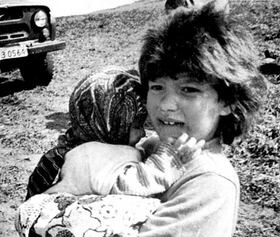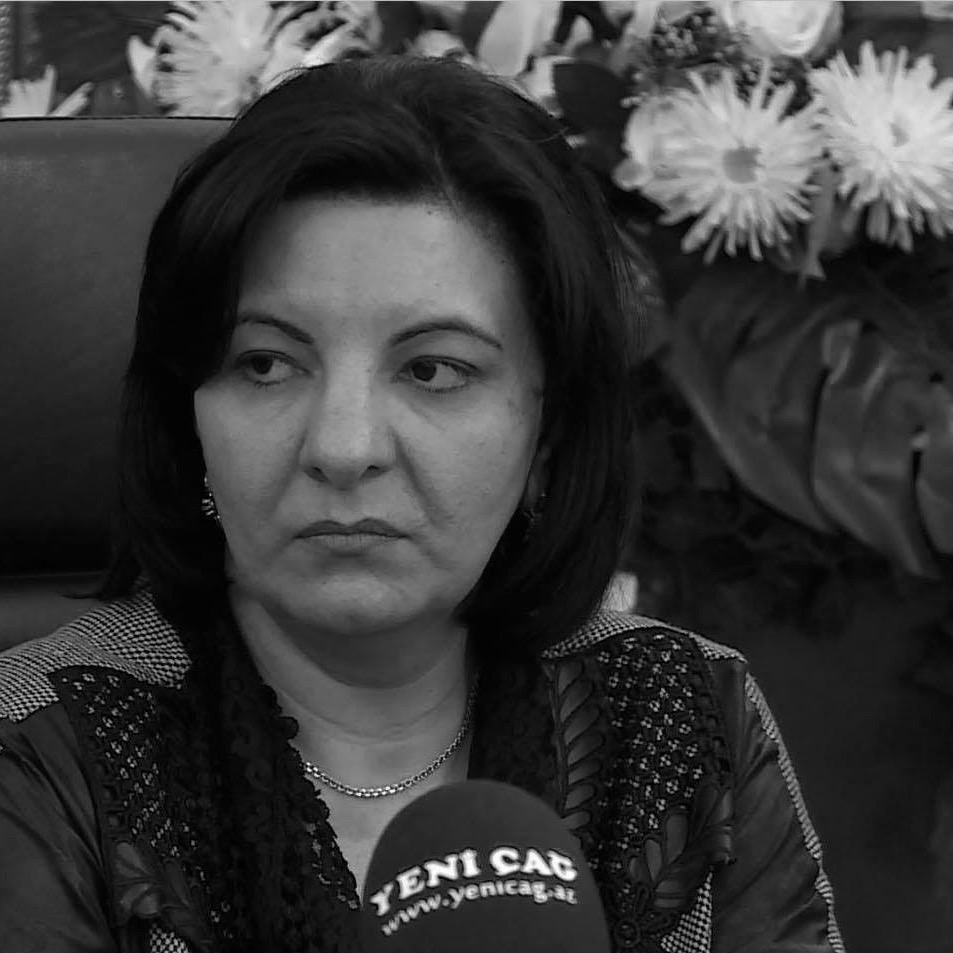
Two weeks ago I was positively surprised to learn about the arrest of Armenia’s former President Robert Kocharyan – one of the main perpetrators of a genocide that turned my life upside down as a young girl 26 years ago.
Kocharyan was taken into custody in Yerevan, and was charged with an attempt to overthrow the constitutional order and causing the death of 10 people in the post-election crackdown in Armenia in March 2008.
I had mixed feelings. I know Kocharyan not only as a former President of Armenia (1998-2008) who killed his own people to guarantee his successor’s (Serj Sargsyan) power, but primarily for his special role in the occupation of Azerbaijan’s territories, the expulsion of my compatriots from their native lands and murdering them and committing the Khojaly Genocide – the first genocide in Europe after the end of the Cold War. For me, a criminal always remains a criminal. It once again proves that those who have committed crimes against other people can never bring happiness to their own people.
Was I relieved reading this news? No, I wasn’t. Because Kocharyan wasn’t charged for the war crimes he committed against Azerbaijani civilians in the early 1990s in the Nagorno Karabakh region of Azerbaijan, especially for his involvement in the horrendous Khojaly Genocide. And because all other perpetrators of this terrible crime against humanity, including Serj Sargsyan, are still unpunished and at large.
I feel much pain when remembering the horrors I experienced in the Armenian torture camp in Nagorno-Karabakh as a captive of the Armenian army. But I know I have to be strong. I have to be confident and determined enough to share my story, the true story of what really happened in Khojaly.
I was 20 when my town Khojaly in Azerbaijan’s Nagorno-Karabakh region fell under Armenian siege. On February 25/26, 1992, Armenian soldiers invaded our town and murdered unarmed civilians indiscriminately. We ran into the night, through the forest, and into the killing field, as bullets sprayed in all directions. I was captured and sent to an Armenian torture camp, where I endured and witnessed unspeakable violence, cruelty and humiliation. I managed to survive, while 613 unarmed Azerbaijani men, women, children and the elderly from my small town did not.
The Human Rights Watch called the Khojaly crime “the largest massacre in the conflict” between Armenia and Azerbaijan, placing direct responsibility for the massacre of Azerbaijani civilians with the Armenian forces. The European Court of Human Rights also confirmed the facts about Khojaly in its ruling from 2010, and over 10 countries and 23 U.S. states have officially condemned this genocide. The United Nations Security Council passed four resolutions in 1993 condemning the illegal occupation and ethnic cleansing of the entire Karabakh region of Azerbaijan by Armenia and demanding the immediate withdrawal of Armenian forces from Azerbaijan’s occupied regions. However with the backing of certain powerful friends, Armenia continues to ignore these legally binding UNSC resolutions, while holding around 20 percent of Azerbaijan’s internationally recognized territory under illegal military occupation.
Even the former Armenian leadership couldn’t deny the fact that the atrocities committed by Armenian military in Khojaly were carefully planned in advance and brutally executed. In his interview with the British journalist Thomas de Waal in 2000, former Armenian President Serj Sargsyan, who was the commander of the separatist Armenian military forces in Nagorno-Karabakh in 1990s and President of Armenia in 2008-2018, admitted his involvement in the Khojaly Genocide, blatantly stating the following: “Before Khojaly, the Azerbaijanis thought that they were joking with us; they thought that the Armenians were people who could not raise their hand against the civilian population. We were able to break that stereotype. And that’s what happened” (Thomas de Waal, “Black Garden: Armenia and Azerbaijan through peace and war”, New York & London: New York University Press, 2003, pp. 169-172)
Kocharyan’s arrest was surprising, but his release from jail this week not quite so, showing vividly that Armenia is still not ready to go after criminals that have enormously damaged Armenia itself and the wider South Caucasus region over the years. Immediately after his release, Kocharyan has announced his decision to return to Armenian politics.
I, together with the other victims of this terrible crime, deserve to have the perpetrators brought to justice. They must answer for what they have done. You can’t hide from justice forever, Mr. Kocharyan and Mr. Sargsyan. Just because you committed this crime 26 years ago doesn’t mean you should be exonerated. There is no statute of limitations on war crimes and crimes against humanity. Criminals should never get a free pass!






















 More news and opinions than at a Shabbat dinner, right in your inbox.
More news and opinions than at a Shabbat dinner, right in your inbox.